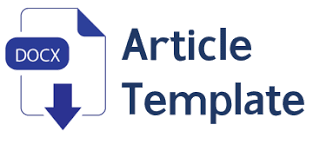Implementasi Asesmen Autentik dalam Kurikulum Merdeka: Studi Fenomenologi pada Guru Penggerak di Sekolah Dasar
DOI:
https://doi.org/10.010125/q67qjt18Keywords:
Authentic Assessment, Merdeka Curriculum, Driving TeachersAbstract
The Merdeka Curriculum positions authentic assessment as a key component in assessing students' holistic development. However, its implementation at the elementary school level faces various complex challenges. This qualitative phenomenological study aims to explore the experiences of Driving Teachers in implementing authentic assessment. Research data were collected through in-depth interviews with 10 Driving Teachers in elementary schools who have implemented the Merdeka Curriculum for at least one year. The research findings reveal three main themes. First, there is a transformation of mindset from conventional assessment paradigms towards a facilitative-reflective approach. Second, teachers face dynamic challenges including administrative burdens and time constraints, yet develop collaborative strategies through communities of practice and technology utilization. Third, the implementation of authentic assessment significantly enhances student engagement and teachers' holistic understanding of student development. This study concludes that the implementation of authentic assessment is a transformative process requiring systemic and collaborative support. The development of digital platforms to simplify documentation and strengthen sustainable communities of practice is recommended.
Downloads
References
Adam Sugiarto, & Sutikno. (2022). Pengaruh Kompetensi Profesional Guru Dan Penggunaan Metode Ummi Terhadap Kemampuan Membaca Al-Qur’an Siwa, 3, 150–163. Retrieved from https://ejurnal.darulfattah.ac.id/index.php/Annaba
Darmuki, A., & Hidayati, N. A. (2023). The influence of 4C skills-based learning model on students' learning outcomes in primary school. Cypriot Journal of Educational Sciences, *18*(1), 288-299. https://doi.org/10.18844/cjes.v18i1.8291
Firdaus, F. M., & Marini, A. (2022). Implementation of authentic assessment in the Merdeka Belajar curriculum in elementary schools. Jurnal Pendidikan Dasar Nusantara, *8*(1), 156-168.
Haryati, S., & Sukarno, S. (2022). Driving teachers' pedagogical competence in implementing differentiated learning in elementary schools. Pedagogia: Jurnal Pendidikan, *11*(2), 223-237. https://doi.org/10.21070/pedagogia.v11i2.1547
Haryono, E., Rangkuti, Rizki Kurniawan, Sariman, S., & Suprihatiningsih, S. (2024). Metodologi Penelitian Kualitatif dan Kuantitatif . Https://Www.Rcipress.Rcipublisher.Org/Index.Php/Rcipress/Catalog/Book/949. Perkumpulan Rumah Cemerlang Indonesia.
Hartoyo, H. (2025). Sejarah Peradaban Islam. Meta Nusantara. Blora: Meta Nusantara
Illah, A., Mansur, R., Hidayatullah, M. F., Sariman, S., & Seena, I. (2022). Principal Leadership in Developing the Competence of Islamic Religious Education Teachers. Nidhomul Haq: Jurnal Manajemen Pendidikan Islam, 7(3). Retrieved fromhttps://www.ejournal.uac.ac.id/index.php/nidhomulhaq/article/view/2658/1077
Kemendikbudristek. (2022). Panduan Pembelajaran dan Asesmen Pendidikan Anak Usia Dini, Pendidikan Dasar, dan Menengah. Jakarta: Kementerian Pendidikan, Kebudayaan, Riset, dan Teknologi.
Lestari, T., & Wahyuningtyas, D. T. (2023). Analisis penerapan asesmen autentik dalam kurikulum merdeka belajar di sekolah dasar. Jurnal Ilmiah Pendidikan Dasar, *10*(1), 45-60.
Mueller, J. (2018). Authentic Assessment Toolbox. North Central College. (Online) https://jfmueller.faculty.noctrl.edu/toolbox/
Muslih, S., Sutikno, S. P. I., & Rinda Fauzian, M. P. (2023). AKHLAK MUSLIM DAN DOA-DOA. Intake Pustaka.
Mustain, M., Karjo, K., & Falah, A. (2025). Tafsir Tarbawi. Meta Nusantara. Blora: Meta Nusantara.
Muchlisin, I. (2025). Psikologi Pendidikan. Meta Nusantara. Blora: Meta Nusantara.
Nugroho, A. P., & Nurasiah, I. (2023). Community of practice: Strategi pengembangan profesionalisme guru penggerak di era merdeka belajar. Jurnal Basicedu, *7*(3), 1678-1690.
Pratiwi, D. I., & Setiawan, B. (2023). Peran guru penggerak dalam implementasi kurikulum merdeka di sekolah dasar. Jurnal Basicedu, *7*(2), 890-901.
Purwanto, M. N., & Faturrohman, O. (2022). Model pelatihan asesmen autentik berbasis teknologi digital untuk guru sekolah dasar. Jurnal Teknologi Pendidikan, *24*(2), 210-225.
Rahayu, R., Iskandar, S., & Abidin, Y. (2022). Inovasi pembelajaran di sekolah dasar melalui implementasi kurikulum merdeka. Jurnal Education and Development, *10*(3), 321-330.
Sari, R. P., & Hadiyanto, H. (2022). Kompetensi guru dalam pelaksanaan asesmen autentik pada kurikulum merdeka di sekolah dasar. Jurnal Ilmu Pendidikan, *28*(1), 1-10.
Sariman, Haryono, E., Wahyudin, M., & Muttaqin, F. Z. (2024). Exploring Research Methodologies Qualitative In Higher Education: Strategies And Approaches For Academic Inquiry. Al Fattah Ejournal Sma Al Muhammad Cepu, 4(01), 74–103. Retrieved from https://www.ejournal.smaamc.sch.id/index.php/belajar/article/view/43
Sariman, Huda, C., & Afif, M. N. (2021). Pengembangan Mutu Peserta Didik dalam Pembelajaran : Implementasi Profesionalisme Guru Madrasah. Jurnal Pendidikan Agama Islam Al-Thariqah, 6(2). https://doi.org/10.25299/al-
Sariman, S. (2025). Transformasi Ekologis Berbasis Spiritualitas: Studi Ekoteologis atas Peran ASN, Masyarakat, dan Gerakan Hijau. MetaNusantara.Com. MetaNusantara.com.
Susilawati, E., & Hidayat, R. (2023). The effectiveness of authentic assessment in improving students' higher order thinking skills. Journal of Education and Learning, *17*(1), 45-56. https://doi.org/10.11591/edulearn.v17i1.20487
Wiggins, G. (1989). A true test: Toward more authentic and equitable assessment. Phi Delta Kappan, *70*(9), 703-713.
Wulandari, S. S., & Sutisna, A. (2023). Tantangan dan solusi implementasi asesmen autentik pada kurikulum merdeka belajar. Jurnal Pendidikan Indonesia, *4*(2), 134-145.
Yulianti, D., & Fahrurrozi, F. (2022). Pengembangan instrument asesmen autentik berbasis digital untuk sekolah dasar. Jurnal Elementary School, *9*(2), 278-289.
Downloads
Published
Issue
Section
License
Copyright (c) 2025 Armiya Nur Lailatul Izzah (Author)

This work is licensed under a Creative Commons Attribution 4.0 International License.






